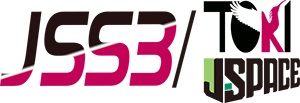Research on the rotorcraft aerodynamics and noise prediction technologies
JAXA Supercomputer System Annual Report February 2023-January 2024
Report Number: R23EDA201G28
Subject Category: Aeronautical Technology
- Responsible Representative: YASUE Kanako, Aviation Technology Directorate, Aircraft Life Cycle Innovation Hub
- Contact Information: IKEDA Tomoaki(ikedat@chofu.jaxa.jp)
- Members: HIGASHIDA Hirokazu, HAYASHI Kenji, IKEDA Tomoaki, KANAYAMA Masatoshi, KISHI Yuki, SAIKI Hideji, YASUE Kanako
Abstract
We aim at the development of aerodynamics and noise computation techniques for the rotorcrafts by extensively applying the unstructured-grid CFD code FaSTAR-Move that utilizes an overset moving grid approach. By using unsteady CFD data obtained by FaSTAR-Move, a fast noise propagation analysis tool that can involve noise-shielding effects is being developed as well.
Reference URL
N/A
Reasons and benefits of using JAXA Supercomputer System
In this research topic, real-scale complicated models must be computed with real flow conditions, which requires large computer resources and is suited to the use of the JAXA supercomputer system.
Achievements of the Year
In this fiscal year, we performed isolated rotating rotor blade analyses by FaSTAR-Move/rNoise coupling approach to identify the numerical schemes and grid arrangements suited to accurate noise predictions by comparing with experimental data. As isolated rotor configurations, we employed a HART-II helicopter model blade and a QTW propellor blade. Through the experimental data comparison, highly resolved convection schemes should be applied to noise prediction problems. However, an additional computation case of rotor-fuselage interaction analysis for the HART-II helicopter model, shows the discrepancy from the experiment and rFlow3D data. We will continue the research to determine this reason.
Publications
– Oral Presentations
1) Kanako Yasue , Masatoshi Kanayama, Hideaki Sugawara and Yasutada Tanabe, “Study of Rotorcraft Noise Prediction Utilizing Unstructured CFD Solver,” 55th Fluid Dynamics Conference / 41st Aerospace Numerical Simulation Symposium, 2023.
2) Kanako Yasue, Hiroki Ura, Hideaki Sugawara, Tomoaki Ikeda, Kazuyuki Nakakita, Kensuke Hayashi, Yoshimi Iijima, Tsutomu Nakajima, Yousuke Sugioka, Yuki Kishi, Yasutada Tanabe, Masahiko Sugiura, Keita Kimura and Noboru Kobiki, “Research Activities for Improving Social Acceptance of Advanced Air Mobility,” 61st Aircraft Symposium, 2023.
Usage of JSS
Computational Information
- Process Parallelization Methods: MPI
- Thread Parallelization Methods: N/A
- Number of Processes: 96 – 960
- Elapsed Time per Case: 200 Hour(s)
JSS3 Resources Used
Fraction of Usage in Total Resources*1(%): 0.14
Details
Please refer to System Configuration of JSS3 for the system configuration and major specifications of JSS3.
| System Name | CPU Resources Used(Core x Hours) | Fraction of Usage*2(%) |
|---|---|---|
| TOKI-SORA | 3635954.59 | 0.16 |
| TOKI-ST | 10369.25 | 0.01 |
| TOKI-GP | 0.00 | 0.00 |
| TOKI-XM | 0.00 | 0.00 |
| TOKI-LM | 355.56 | 0.03 |
| TOKI-TST | 0.00 | 0.00 |
| TOKI-TGP | 0.00 | 0.00 |
| TOKI-TLM | 0.00 | 0.00 |
| File System Name | Storage Assigned(GiB) | Fraction of Usage*2(%) |
|---|---|---|
| /home | 1222.34 | 1.01 |
| /data and /data2 | 129632.34 | 0.80 |
| /ssd | 30720.00 | 2.90 |
| Archiver Name | Storage Used(TiB) | Fraction of Usage*2(%) |
|---|---|---|
| J-SPACE | 7.19 | 0.03 |
*1: Fraction of Usage in Total Resources: Weighted average of three resource types (Computing, File System, and Archiver).
*2: Fraction of Usage:Percentage of usage relative to each resource used in one year.
ISV Software Licenses Used
| ISV Software Licenses Used(Hours) | Fraction of Usage*2(%) | |
|---|---|---|
| ISV Software Licenses(Total) | 75.57 | 0.03 |
*2: Fraction of Usage:Percentage of usage relative to each resource used in one year.
JAXA Supercomputer System Annual Report February 2023-January 2024



